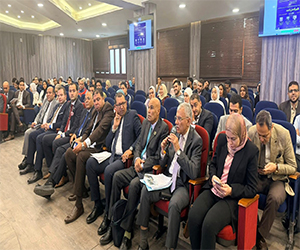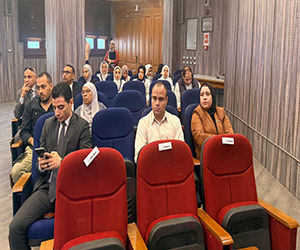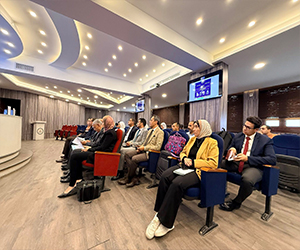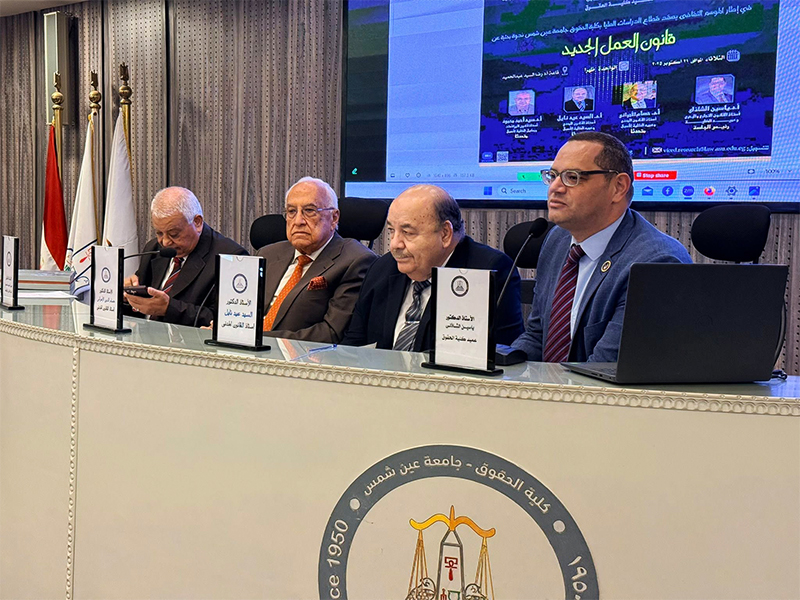The Faculty of Law hosts an educational seminar on the "New Labor Law 2025"
As part of the cultural season of the Faculty of Law at Ain Shams University, and under the patronage of Prof. Mahmoud Diaa Zain El Abedin, President of Ain Shams University; Prof. Amany Osama Kamel, Vice President for Postgraduate Studies and Research; and Prof. Yassin El-Shazly, Dean of the Faculty of Law, the Postgraduate Studies Sector of the Faculty organized a comprehensive academic seminar entitled:
"The New Labor Law".
The seminar, held at Prof. Reda El-Sayed Abdel Hamid Hall, witnessed wide attendance from professors, researchers, and postgraduate students. It aimed to shed light on the legal, social, and economic dimensions of the newly enacted Labor Law No. 14 of 2025, which recently came into force.
The session was chaired by Prof. Yassin El-Shazly, Professor of Commercial and Maritime Law and Dean of the Faculty, and featured distinguished legal scholars, including Prof. Hossam El-Ahawany, Professor of Civil Law and Former Dean, Prof. El-Sayed Abdel Nayel, Professor of Civil Law and Former Dean, Prof. Sayed Ahmed Mahmoud, Professor of Procedural Law and Former Vice Dean.
In his opening remarks, Prof. Yassin El-Shazly welcomed the esteemed legal experts and attendees, emphasizing the significance of the seminar's topic and the faculty’s role in highlighting the key aspects of the New Labor Law No. 14 of 2025. He noted that this law represents a paradigm shift in regulating the private-sector work environment, aiming to address its legal, social, and economic implications.
The seminar discussed the major reforms and updates introduced by the new law, which marks a significant development in regulating labor relations in the private sector. It aims to strike a fair balance between workers’ rights and employers’ interests, creating a more attractive investment climate.
Key discussion points included The evolution of labor laws in Egypt since 1959, through the Labor Law of 2003, up to the current 2025 legislation, The abolition of arbitrary dismissal, with the law formally eliminating the use of the controversial "Form 6", and making unjust dismissal unlawful except by court ruling, providing greater job security and legal protection for workers.
The seminar also explored Labor dispute resolution mechanisms, both individual (between a worker and an employer) and collective (between groups of workers/unions and employers/organizations), stressing the importance of quick, amicable settlements and reducing reliance on lengthy court procedures, Working hours regulation, with the law setting a maximum of 8 actual working hours per day or 48 hours per week, and mandating rest periods of no less than one hour, Women's labor rights, including the extension of paid maternity leave to four months instead of three, allowed up to three times during service, and regulations concerning childcare leave, and Rights of persons with disabilities and access to study leave.
The speakers highlighted the law’s requirement for an annual mandatory salary increase, not less than 3%, and the expansion of responsibilities for the National Wages Council.
The seminar further addressed the development of labor courts and procedures in Egypt, comparing previous laws (such as Law No. 12 of 2003) to the new Labor Law No. 14 of 2025, which emphasizes specialization, speed, and efficient justice through dedicated labor courts, the importance of regulating modern forms of employment, such as remote work, part-time work, and platform-based digital work, aligning with global changes in the labor market.
The seminar concluded with a set of recommendations, most notably the need to intensify awareness campaigns among workers and employers regarding the provisions of the new law, to ensure its optimal implementation. This would help foster a productive and healthy work environment that supports Egypt’s national economic growth.
 |
 |
 |


.svg)

